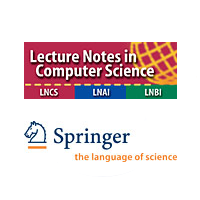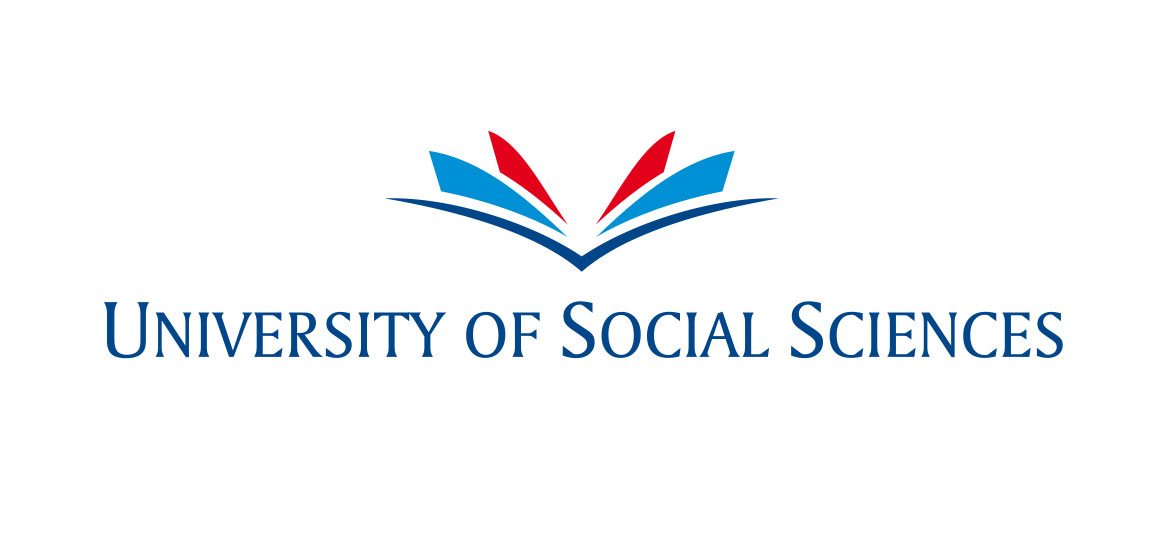Special Sessions
Special session: Complex-, hypercomplex-valued and fuzzy neural networks
General description
Complex, Hypercomplex-valued and Fuzzy Neural Networks, such as complex-valued, quaternion-valued, and broader hypercomplex models, have gained significant traction in research over the past decade. Their appeal lies not only in handling multidimensional data adeptly but also in leveraging the geometric and algebraic properties inherent in hypercomplex numbers. For instance, complex-valued networks play a crucial role in accurately interpreting phase information, crucial in various wave- and rotation-centric domains like electromagnetism, light waves, quantum phenomena, and oscillations.
Quaternion-valued networks, tailored for three- and four-dimensional data modeling, have proven effective in processing diverse multivariate images such as color and polarimetric SAR images. Despite substantial theoretical advancements and successful applications, avenues for research in hypercomplex-valued neural networks remain open. This includes extending prevalent real-valued network architectures and training algorithms to accommodate hypercomplex values formally.
The scope of applications for these networks is vast, spanning pattern recognition, classification, nonlinear filtering, intelligent image processing, brain-computer interfaces, time-series prediction, bioinformatics, and robotics.
This dedicated session aims to foster a comprehensive exchange of ideas, showcasing recent research findings, and charting future directions in complex-, hypercomplex-valued and fuzzy neural networks. We guess this forum to attract speakers and researchers with contributing to this burgeoning community, ultimately benefiting computational intelligence researchers and other fields reliant on advanced neural network tools.
List of topics
This special session welcomes papers that are or might be related to all aspects - theoretical and application - of complex-, hypercomplex-valued and fuzzy neural networks. Interdisciplinary contributions from other areas on the proposed scope's borders are welcome. The following topics are included (but not limited to
- Mathematical aspects of complex-, hypercomplex-valued and fuzzy neural networks
- Complex, hypercomplex-valued and fuzzy activation functions
- Learning algorithms for complex, hypercomplex-valued and fuzzy neural networks
- Complex, hypercomplex-valued and fuzzy associative memories
- Pattern recognition and classification problems, time series theories using complex, hypercomplex-valued and fuzzy neural networks
- Complex, hypercomplex-valued and fuzzy neural networks in nonlinear filtering
- Towards dynamical approach of complex, hypercomplex-valued and fuzzy neurons and networks
- Fractal and chaos in the complex, hypercomplex-valued and fuzzy domains
- Complex, hypercomplex-valued and fuzzy deep neural networks
- Spatiotemporal processing using complex, hypercomplex-valued and fuzzy neural networks
- Frequency domain processing using complex-valued neural networks
- Phase-sensitive signal processing
- Applications of complex, hypercomplex-valued and fuzzy neural networks in image processing, speech processing, physics phenomenon, economy and bioinformatics
- Quantum computation and quantum neural networks
- Complex, hypercomplex-valued and fuzzy neural networks in brain-computer interfaces
- Complex, hypercomplex-valued and fuzzy neural networks in robotics
- Complex, hypercomplex and fuzzy-based hardware/devices such as lightwave and spin-wave neural devices
Short Biography of the organizers
Agnieszka Niemczynowicz, PhD in Physics (University of Łódź, Poland), is an academic and teaching staff member of the Faculty of Mathematics and Computer Science at the University of Warmia and Mazury in Olsztyn. She is the author or co-author of several dozen scientific publications in renowned international scientific journals covering the fields of mathematical physics, experimental physics, data analysis, and machine learning. Together with collaborators she is the recipient of the 2022 Best Paper Award for the Journal of Sound and Vibration (Elsevier). She has been a beneficiary of scientific and educational programs, managing and executing scientific grants funded by Polish Scientific Agencies and the European Union, including Dr INNO (2012), ProEdu UWM (2014), NAWA (2019, 2022). She was a laureate of the Mentoring Program by the Foundation for Polish Science (2014). She has undertaken numerous scientific and teaching internships and visits, such as IMR CAS Shenyang (2013, 2015, China), University of Rome 'La Sapienza' (2014, Italy), School of Civil Engineering, Universitat Politècnica de València (2017, 2019, 2022, 2023, 2024, Spain). She's been a member of organizational and scientific committees of scientific conferences, such as IJCRS2017 (Organizing Committee member), 8th APMAS2018 (Scientific Committee member), International Conference of Young Mathematicians, Ukraine (Scientific Committee member). She's a member of international scientific associations and EU networking programs, including European Society for Mathematical and Theoretical Biology (ESMTB), ARBRE-MOBIEU (CA 15126), Mathematics for Industrial Network (TD 1409), Mathematical models for interacting dynamics on networks (CA18232). She reviews scientific journals articles and grants funded by EU programs (most recently Horizon Europe). She's the originator, coordinator, and implementer of popular science projects aimed at young people. She's also a member of subject competition committees for mathematical competitions. Her research interests encompass mathematical techniques and their applications in physics, engineering, biology, medicine, molecular spectroscopy, and management. She focuses on using computational and mathematical methods to extract information from analytical data, employing multivariate statistics, chemometric methods, machine learning, and hypercomplex-valued neural networks. She conducts experimental studies using FTIR (Fourier Transform Infrared Spectroscopy) and fluorescence spectroscopy on various materials, including biomaterials, aiming to assess their quality and quantity.
dr. hab. Piotr Artiemjew, Prof. UWM, serves as an Associate Professor in Decision Systems and Deputy Dean for Information Technology Development at the University of Warmia and Mazury in Olsztyn. He also leads the Discipline Team for Technical Informatics and Telecommunications. A member of several professional societies, including the Polish Artificial Intelligence Society and the International Rough Set Society, Dr. Artiemjew has made significant contributions to the field of artificial intelligence. He has been recognized with distinctions such as the PP-RAI Contest award for influential research in rough sets and has supervised award-winning diploma theses. Dr. Artiemjew is a prolific reviewer for numerous esteemed journals across various disciplines and serves on the organizing committees of key international conferences related to AI, machine learning, and robotics. His research interests are focused on decision systems, computational intelligence, and their applications in technological processes, underpinning his role as a leading figure in his field.
Irina Perfilieva, Ph.D., dr.h.c., prof.h.c., is a full professor of Applied Mathematics in the University of Ostrava (OU), Czech Republic. At the same time, she is a Senior Researcher in the Institute for Research and Applications of Fuzzy Modeling, OU. She is the author or co-author of six books on the mathematical principles of fuzzy sets and fuzzy logic, as well as many special issues of scientific journals. She has published more than 300 papers in the areas of many-valued logic, fuzzy logic, fuzzy approximation, fuzzy relation and fuzzy differential equations. She is a member of the editorial boards of the most prestigious journals in the field of fuzzy sets, fuzzy logic and applications:
She serves as a member of the program committees of the most prestigious international conferences and congresses in the field of fuzzy and knowledge-based systems. She received the first Da Ruan Memorial Award. She is an honorary member of EUSFLAT and an IFSA Fellow. Her research interests lie in the fields of mathematical modeling, image processing with fractional integral equations, and the fundamentals of neural network computing, where she successfully uses both modern and classical approaches.
Prof. Vilém Novák, Ph.D., DSc. is the founder and former director of the Institute for Research and Applications of Fuzzy Modeling of the University of Ostrava, Czech Republic. The institute (established in 1996) is one of the world-renowned scientific workplaces that significantly contributed to the theory and applications of fuzzy modeling. V. Novák obtained PhD in mathematical logic at Charles University,
Prague in 1988; DSc. (Doctor of Sciences) in computer science in the Polish Academy of Sciences, Warsaw in 1995; full professor at Masaryk University, Brno in 2001. His research activities include mathematical fuzzy logic, approximate reasoning, mathematical modeling of linguistic semantics, fuzzy control, analysis and forecasting of time series, and various kinds of fuzzy modeling applications. He belongs among the pioneers of the fuzzy set theory. He was general chair of the VIIth IFSA'97 World Congress, Prague and of the international conferences EUSFLAT 2007, Ostrava and EUSFLAT 2019, Prague. He is a member of the editorial boards of several scientific journals. He is often invited to give plenary talks at international conferences and to
give lectures in universities worldwide. He is the author or co-author of
5 scientific monographs, two edited monographs, and over 320 scientific papers with over 7000 citations. He was awarded in the International Conference FLINS 2010 in China and is IFSA (International Fuzzy Systems Association) fellow. He is currently the vice-president of IFSA.
Maciej Jaworski, Professor at the Cracow University of Technology (CUT), holds the position of Associate Professor at the Computer Science Department since March 1, 2021. Prior to this, until December 31, 2022, he served as the Head of the department. M. Jaworski earned his PhD and DSc (Polish habilitation) in computer science from the Czestochowa University of Technology in 2015 and 2019, respectively. His research focuses on various aspects of data stream mining, including the development of splitting criteria for decision trees tailored for streaming data and the detection of concept drift using Restricted Boltzmann Machines. Additionally, he is actively involved in research related to neural networks and deep learning, particularly in the context of image retrieval tasks. M. Jaworski has authored or co-authored more than 60 research papers published in various journals and conference proceedings. Beyond his research contributions, he serves as an Associate Editor for the Evolving Systems journal and as a reviewer for several prestigious scientific journals, such as Information Sciences and IEEE Transactions on Neural Networks and Learning Systems.
Program Committee
Agnieszka Niemczynowicz, Piotr Artiemjew, Irina Perfilieva, Vilem Novak, Maciej Jaworski
Call for Special Sessions, Workshops, and Tutorials
ICAISC 2024 is seeking innovative, high-quality and potentially interdisciplinary proposals for Special Sessions, Workshops, and Tutorials that complement the regular program. Please send the proposals to icaisc@pcz.pl with the following information:
- Special Session, workshop, or tutorial title
- General description of proposed topic
- List of topics (scope)
- Short biography of the organizers
- Possibly, proposed Program Committee
Special session and workshop papers must meet the same standards as regular papers. They will be published in the LNAI conference proceedings.





























